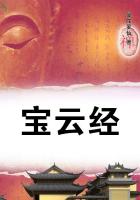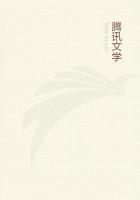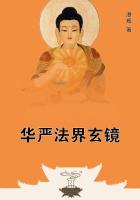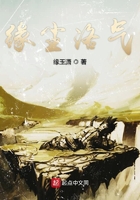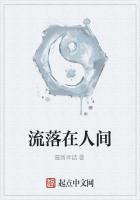I have in mind two men, both heavy drinkers but differing in everything else. One was a philosopher who saw the world in that dreadful, clear white light of which Jack London[1] spoke, that light which leaves no cozy, pleasant obscurities, in which Truth, the naked, is horrible to look at, when life seems too unreal, when purposes seem most futile. At such times he would get drunk and be happy for the time being, and afterwards find himself bitterly repentant, though even that was a pleasure compared to the hollow world in which his sober self dwelt. Then one day, when all his friends had given him up as hopeless, as destined for disaster, he read a book. "The Varieties of Religious Experience," by William James, came to him as a clear light comes to a man lost in the darkness; he saw himself as a "sick soul," obsessed with the idea that he saw life relentlessly and clearly.
There came to him the conviction that he had been arrogant, a conceited ass, bent on ruin, "a sickly soul," he said. Out of that realization grew resolutions that needed no vowing or pledging, for as simply as a man turns from one road to another he turned from his habit into healthy-minded work.
[1] Jack London's "John Barleycorn."
The other was an essentially healthy-minded man but he loved joviality, ******* and good fellowship. Without ever knowing how he came to it, he found himself a confirmed drinker, holding an inferior place, passed by men of lesser caliber. He struggled fitfully but always slipped when the next "good fellow" slapped him on the back and invited him to have a drink. One day he stepped out of a barroom with a group of his cronies, and though he walked straight there was a reckless, happy feeling in him that pushed him on to his folly. A young lady standing on a street corner waiting for a car caught his eye. Signaling to his companions, he walked up to her, put his arms around her and kissed her. The girl stood as if petrified, then she pushed him off and looked him up and down deliberately with cold scorn in her eyes. Then she took off her glove and slapped him across the face with it, as if disdaining to use her hand. With that she walked away.
The man was a gentleman, and he stood there stricken. The laugh of his companions aroused him. He saw them as if they were himself, with a horror and disgust that made him suddenly run away from them.
"From that moment I never again had the slightest desire for drink. The slap sobered me for good."
While these conversions occur now and then there are certain practical points in the breaking of a habit that need attention in each case.
In the first place it is best in the majority of instances to avoid the particular stimuli and associations that set off the habit. The stimulus is a kind of trigger; pull it and the habit can hardly be checked. Whatever the situation is that acts as the temptation, avoid it. Not for nothing do men pray, "Lead us not into temptation." The will needs no such exercise and rarely stands up well against such strain. This may mean a removal for the time being from the source of temptation, a flying away to gain strength.
Further, a substitution of habit, of purpose, is necessary. Some line of activities must be selected to fill in the vacuum. A hobby is needed, a devotion to some larger purpose, whether it be in work or social activity. "Nature abhors a vacuum"; boredom must be avoided, for that is a pain, awakening desire. The gymnasium, golf, sports of all kinds are substitute pleasures of great value.
Third, harness a friend, a superior or a respected equal to the yoke with you. Pull double harness; let him lend his strength to yours. Throw away pride; confess and receive new energy from his sympathy and wisdom. If you are lucky enough to have such a friend, or some wise counselor, thank God for him. For here is where the true friend finds his highest value.
In the analysis of any character the question of the kind of habits formed demands attention. Since almost all traits become matters of habit, such an inquiry would sooner or later lead to a catalogue of qualities. What is here pertinent is this,--that one might inquire into the kind of habits that are easily formed by the individual and the kind that are not. Habits fall into groups such as these:
1. Relating to care of the body: cleanliness, diet, exercise, bowel function, sleep. Here we learn about personal tidiness or the reverse, foppery, dandyism, gluttony, asceticism, etc.
2. Relating to method, efficiency, neatness in work: some people find it almost impossible to become methodical or neat; others become obsessed by these qualities to the exclusion of mobility.
3. Relating to the pursuit of pleasure: type of pleasure sought, time given to it, hobbies.
4. Relating to special habits: alcohol, tobacco, drugs, *** perversions.
5. Relating to study and advancement: love of books, attendance at lectures.
Especially in the study of children is some such scheme essential, for then one gets a definite idea of their defects and takes definite efforts to make habitual the desired practice, or else one sees the special trend, and, if it is good, fosters it.
This, of course, is the long and short of character development.
第一章CHAPTER IV. STIMULATION, INHIBITION, ORGANIZING ENERGY, CHOICE AND CONSCIOUSNESS
There are three fundamental factors in the relation of any organism to the environment and in the relation of the various parts of an organism to each other which we must now consider. To consider a living thing of any kind as something separate from the stimuli the world streams in on it, or to consider it as a real unit, is a mistake that falsifies most of the thinking of the world.

